AWS Certification Pathway for 2024
Prepare for AWS Certification
Why Pursue an AWS Cloud Certification?
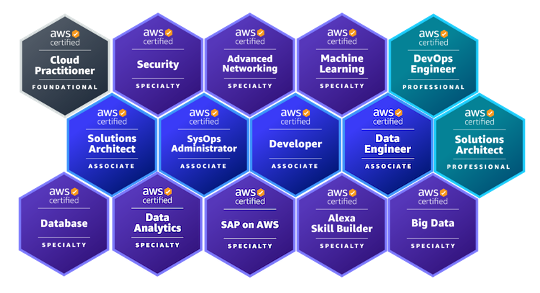
Understanding the AWS Certification Pathway
AWS Cloud Certification Categories Based on Job Functions
Get Certified Now
1. AWS Certified Cloud Practitioner
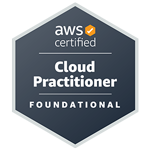
This foundational certification is ideal for individuals seeking to understand the basic concepts of AWS cloud, including its architecture, key services, pricing models, and basic security practices. It’s designed for those in managerial, sales, or technical roles interacting with AWS.
Exam Domains:
- Cloud Concepts: Understand AWS Cloud and its value proposition.
- Security and Compliance: Learn security practices and compliance in AWS.
- Technology: Understand AWS core services and tools.
- Billing and Pricing: Grasp AWS pricing models and account management.
2. AWS Certified AI Practitioner - Fundamental
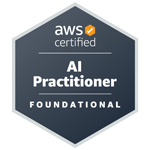
The AWS Certified AI Practitioner certification validates foundational knowledge of AI and machine learning concepts, along with their applications using AWS technologies. It emphasizes generative AI and covers key topics such as AI frameworks, model design, training, evaluation, and responsible AI practices. This certification is ideal for professionals seeking to demonstrate their understanding of AWS AI/ML solutions.
Exam Domains:
- SDLC Automation: Design and implement automation for development processes.
- Configuration Management: Implement and manage systems configuration.
- Monitoring and Logging: Set up monitoring and logging systems for AWS solutions.
- Incident and Event Response: Respond to operational events effectively.
- Security and Governance: Automate security controls and compliance validation.
Prepare for AWS Certification
3. AWS Certified Solutions Architect – Professional
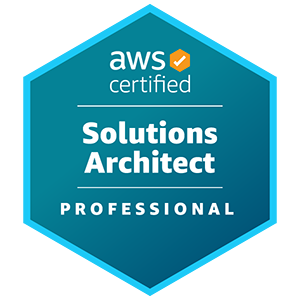
This advanced certification validates the ability to design and deploy scalable, secure, and reliable applications on AWS. It’s ideal for experienced architects.
Exam Domains:
- Design for Organizational Complexity: Address design requirements for complex systems.
- Design for New Solutions: Architect scalable, cost-optimized cloud solutions.
- Migration Planning: Plan migration of on-premises workloads to AWS.
- Cost Control: Optimize costs across workloads.
- Continuous Improvement: Evaluate and improve cloud-based solutions.
4. AWS Certified DevOps Engineer – Professional
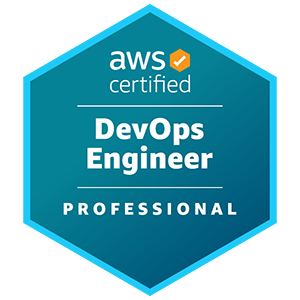
Targeted at DevOps engineers, this certification validates expertise in automating infrastructure and CI/CD pipelines on AWS.
Exam Domains:
- SDLC Automation: Design and implement automation for development processes.
- Configuration Management: Implement and manage systems configuration.
- Monitoring and Logging: Set up monitoring and logging systems for AWS solutions.
- Incident and Event Response: Respond to operational events effectively.
- Security and Governance: Automate security controls and compliance validation.
5. AWS Certified Solutions Architect – Associate
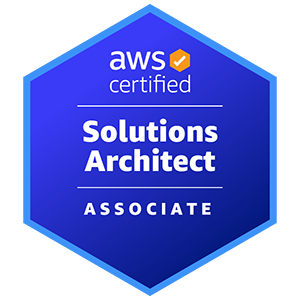
This certification focuses on designing cost-effective, scalable, and secure applications on AWS. It is best suited for individuals in solutions architecture roles.
Exam Domains:
- Design Secure Architectures: Build resilient and secure AWS architectures.
- Design High-Performing Architectures: Create optimized and scalable solutions.
- Design Cost-Optimized Architectures: Implement cost-effective cloud solutions.
- Design Resilient Architectures: Ensure high availability and fault tolerance.
6. AWS Certified Developer – Associate
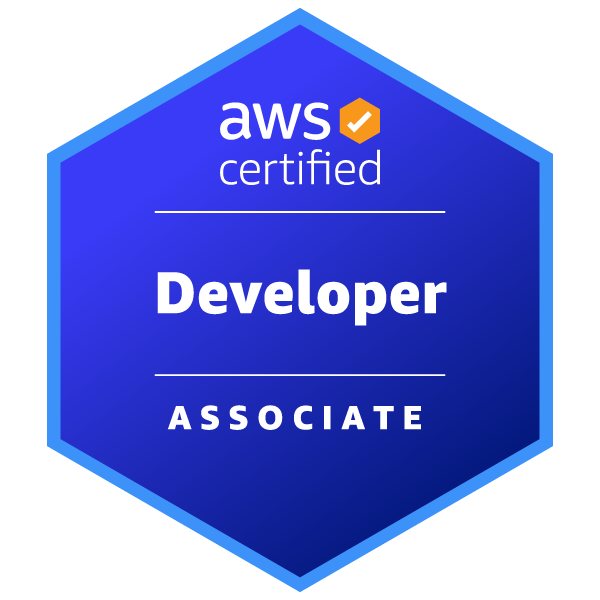
This certification validates the ability to develop and deploy applications on AWS. It is aimed at developers who work on AWS-based solutions.
Exam Domains:
- Development with AWS Services: Use AWS SDKs for application interaction with services.
- Security: Apply secure coding practices and implement authentication/authorization.
- Deployment: Deploy applications using AWS tools and services.
- Refactoring: Optimize application performance and cost on AWS.
- Monitoring and Troubleshooting: Use AWS tools to monitor applications and resolve issues.
7. AWS Certified SysOps Administrator – Associate
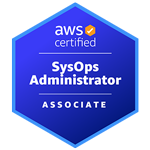
This certification focuses on deploying, managing, and operating AWS environments. It is designed for systems administrators and operations professionals.
Exam Domains:
- Monitoring, Logging, and Remediation: Set up monitoring and troubleshoot operational issues.
- Deployment and Provisioning: Deploy resources and manage system configurations.
- High Availability, Backup, and Recovery: Design resilient systems and implement backup solutions.
- Security and Compliance: Manage identity and access control and ensure compliance.
- Networking and Content Delivery: Configure networking and optimize content delivery on AWS.
- Cost and Performance Optimization: Monitor usage and optimize system performance and costs.
Prepare for AWS Certification
8. AWS Certified Data Engineer – Associate
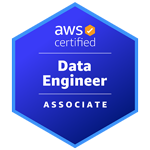
The AWS Certified Data Engineer – Associate certification is designed for professionals who work with data processing and analytics on AWS. It validates the skills required to design, implement, and manage data workflows, data lakes, and data pipelines in the AWS environment. This certification is ideal for data engineers and those involved in the architecture and management of data systems on AWS.
Exam Domains:
- Data Engineering Design: Design and implement data storage solutions using AWS services like Amazon S3, Redshift, and DynamoDB.
- Data Pipeline Development: Create and manage data pipelines using AWS Glue, Amazon Kinesis, and other data integration tools.
- Data Security and Compliance: Implement data security measures including encryption, identity, and access management for data storage and transfer.
- Data Analysis and Reporting: Utilize AWS analytics services (like Amazon Athena, AWS Lake Formation, and Amazon QuickSight) to analyze and visualize data.
- Data Management and Optimization: Monitor, troubleshoot, and optimize data processing workflows and data quality.
9. AWS Certified Advanced Networking – Specialty
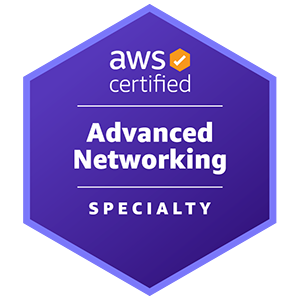
This certification validates expertise in designing, implementing, and managing complex networking tasks on AWS and hybrid IT networks. It’s ideal for network architects and engineers.
Exam Domains:
- Design and Implement Hybrid IT Network Architectures: Integrate AWS and on-premises systems.
- Design and Implement Core AWS Network Solutions: Build scalable, secure AWS networking solutions.
- Automate AWS Networking: Use automation tools for network configuration and management.
- Network Optimization: Optimize performance and troubleshooting.
- Security and Compliance: Implement secure networking practices.
10. AWS Certified Security – Specialty
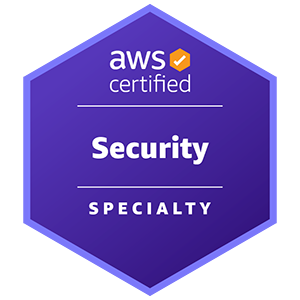
This certification validates knowledge of securing AWS workloads, including encryption, compliance, and risk management. It’s designed for security engineers and compliance professionals.
Exam Domains:
- Incident Response: Design and implement security response processes.
- Logging and Monitoring: Set up monitoring to detect and respond to security issues.
- Infrastructure Security: Implement secure infrastructure and access management.
- Data Protection: Secure data through encryption and key management.
- Identity and Access Management: Design access control mechanisms.
11. AWS Certified Machine Learning – Specialty
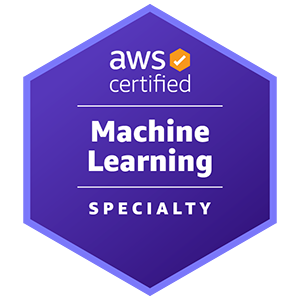
This certification validates expertise in building, deploying, and maintaining machine learning models on AWS. It’s ideal for data scientists and machine learning engineers.
Exam Domains:
- Data Engineering: Prepare data for machine learning workloads.
- Exploratory Data Analysis: Analyze and visualize data to gain insights.
- Modeling: Build, train, and optimize machine learning models.
- Machine Learning Implementation and Operations: Deploy and maintain ML solutions on AWS.



